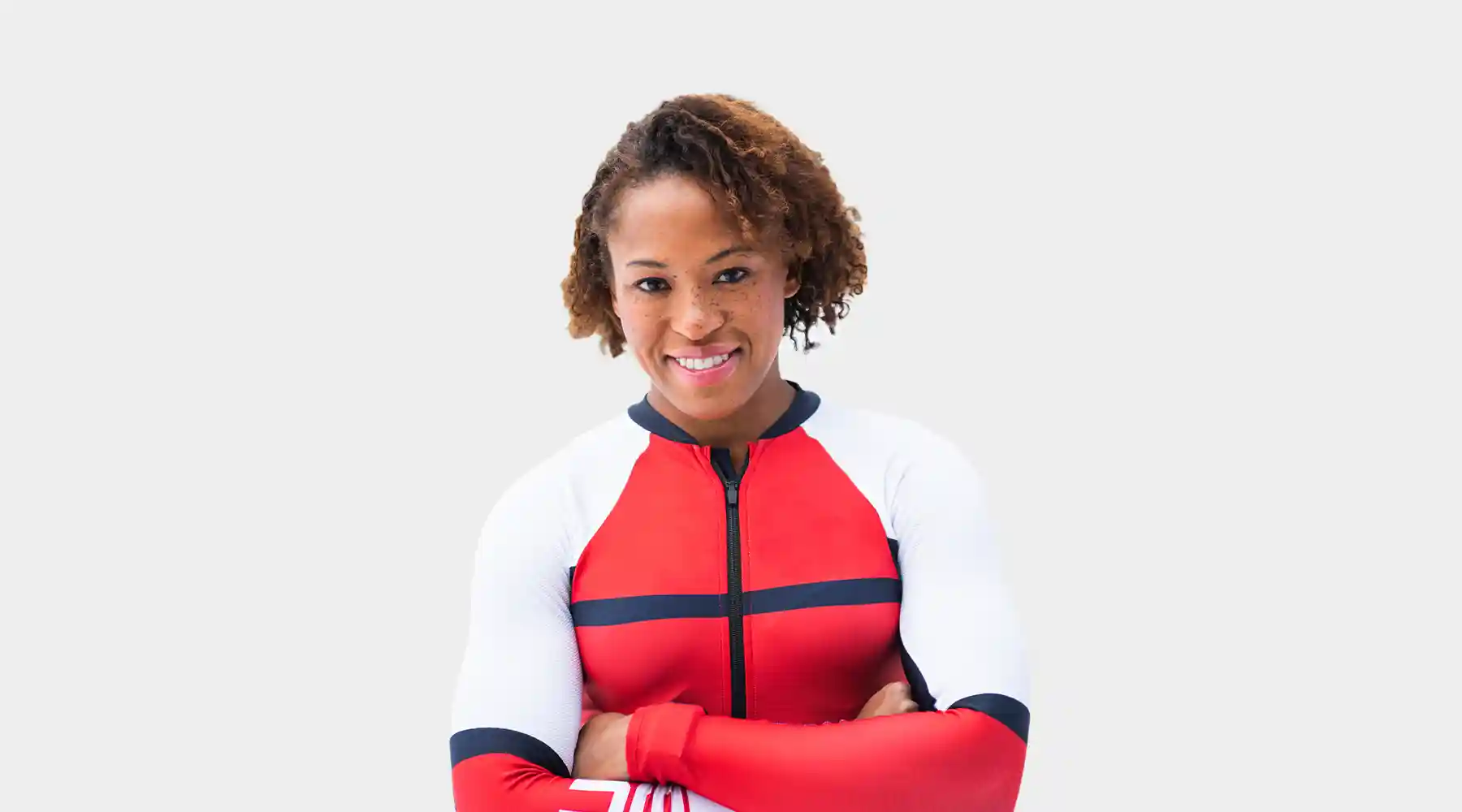Topics
- Post
- Member Stories
- Women’s Performance
Podcast 162: Bobsled Medalist Lauren Gibbs on Finding Her Sport at Age 30

On this week’s episode, Olympic bobsledder Lauren Gibbs joins us for a discussion on how it’s never too late to chart a new course in life.
Lauren Gibbs started bobsledding at 30 years old, and less than 4 years later, she was representing the United States at the 2018 Winter Olympics in Pyeongchang. She won a silver medal at those games with her teammate, Elana Meyers Taylor, and also won a gold medal at the 2020 World Championships. Lauren talks about her journey from college athletics to the business world and then finally to the Olympics, as well as the sacrifices needed to make it to the top. She also shares why she’s advocating for greater parity in women’s sports, and how WHOOP helps her in her daily life. Stay healthy and stay in the green!
Bobsledder Lauren Gibbs Podcast Quotes & Highlights
2:35 - Finding Bobsled. “I tried out as a joke,” Lauren says of finding bobsled. “I guess 8 years into the sport the joke is now on me.” 3:58 - 2022 Olympics. Lauren recently had surgery on her hip and talked about watching her teammate, Elena Meyers Taylor, compete in the recent Olympics in Beijing. “It’s definitely easier to compete in the Olympics than it is to watch your loved ones compete in the Olympics.” Lauren was recovering from surgery in the hospital during the Olympics and said she set off the alarms on her heart rate monitors while watching Taylor compete. 7:24 - Finding Yourself. “Bobsled was really an opportunity to spend some time figuring out who I was meant to be. And I think so many of us think that once we graduate from college, we're going to have that concept of who we are and what we're meant to do and our place in the world. It's that way for some people. And for those people, that's amazing. That just wasn't it for me. I'm just so grateful that my third act took me to the Olympics.” 10:09 - Your Personal Power. “It's so important to know the power that you possess as an individual. You can directly impact something. I'm not curing cancer by bobsledding or [creating] world peace, but if I now know how to impact something specifically in this realm, how can I now shift that to change the world?” 14:04 - Starting the Journey Late. “The idea of going to the Olympics, picking up a sport at 30, it just sounds so ridiculous. You know, to me, an Olympian was always someone that found their sport at four years old,” Lauren says. “I was all in from the beginning, because I only have one gear which is all in or not at all. But I never actually thought being all in, at this phase in my life … would result in me going to the Olympics.” 18:30 - WHOOP and Recovery. Lauren shares how WHOOP has helped with her sleep habits, which have helped with her recovery. “I think I was able to recover faster because I had more data.I don't necessarily think it's a function of who I am. For someone who's a crap sleeper, the information that I had was really important.” 25:34 - Promoting Women’s Sports. Lauren works with Parity Now, an organization advocating for parity in women’s sports. 31:32 - Body Image and Weight in Women’s Sports. Lauren discusses the challenges and biases that still exist in women’s sports and how some athletes can develop an unhealthy relationship with food due to the focus on body image and weight in sports. 36:47 - Scandals at the Olympics. Lauren shares her thoughts on athletes and countries who try and skirt the rules at the Olympic level, and also addresses the controversy surrounding 15-year-old Russian figure skater Kamila Valieva, who tested positive for a banned heart medication before the Olympics. “I feel terrible for her,” Lauren says. “I’m sure she’s getting villainized.” Valieva was allowed to skate at the Olympics because she is a minor and is considered a protected person under international sporting rules. 37:49 - Finding Motivation. “When I was unmotivated and I didn't feel like getting up to go train, I would think to myself, ‘What if this was one run for the Olympics?’” 43:45 - Making Little Changes. Lauren talks about how small, incremental improvements add up over time. “That’s how I got to the Olympics. I went from running a 4.10 30-meter sprint to a 3.84 in three years. It was all from doing little things every day.” Connect with Lauren on Instagram.